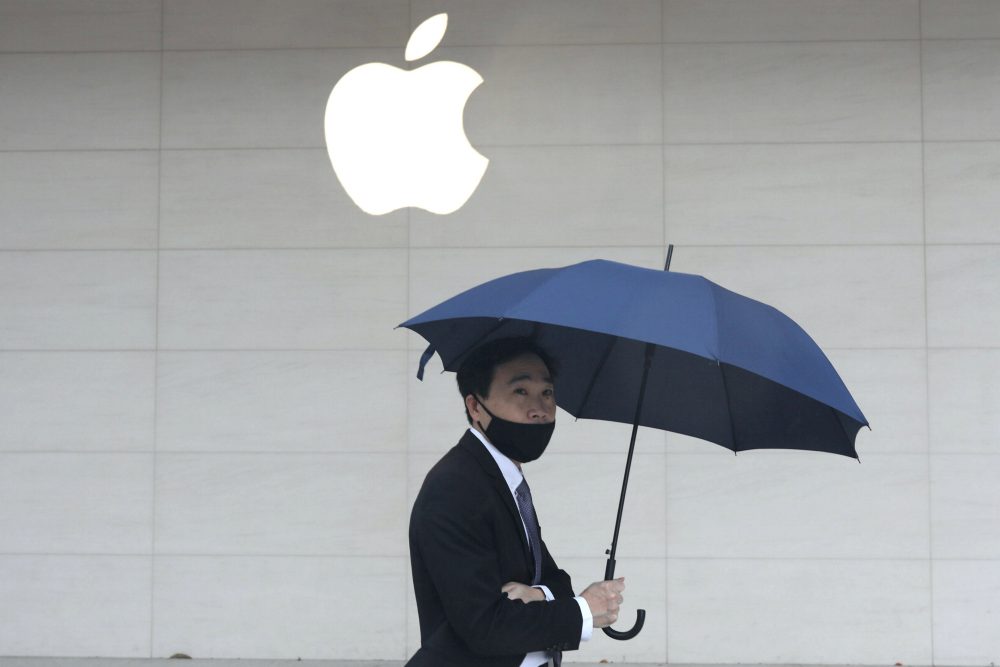(AF) Like many Western companies looking at exploiting opportunities in other Asian markets to reduce over-dependence on China, Apple seems to be increasingly embracing the “China Plus One” strategy in an effort to minimize the impact of the ongoing trade tensions between the US and China.
Apple has asked Foxconn to move some of its iPad and MacBook assembly from China to Vietnam, Reuters reported on Thursday, as it diversifies production to minimise the impact of a Sino-US trade war.
The development comes as the outgoing administration of US President Donald Trump encourages US firms to shift production out of China. The Trump administration has targeted made-in-China electronics for higher import tariffs, and restricted supplies of components produced using US technology to Chinese firms it deems a national security risk.
Western companies are branching out by opening production facilities in other Asian countries, including Vietnam, Indonesia, Thailand, and India, as an alternative to diversify away from China being a company’s single source.
The China Plus One (+1) strategy is a concept through which a company diversifies certain operations to other countries while retaining China as the main supply source or consumer market.
Companies with a stake in the lucrative Chinese market may find it imperative to diversify their supply chains for a variety of reasons: Rising business costs in China, uncertainties stemming from the US-China trade spat and, more recently, border closures owing to Covid-19.
Apple’s China+1 Moves
Apple has been seeking to add geographic diversity to its supply chain for some time now.
In 2017, for instance, concerned by its over-dependence on China, Apple started shifting a small part of its production to Vietnam and India, but retained much of its production base in China due to the Middle Kingdom’s dominance on its supply China.
According to reports, about 90% of Apple products are assembled in Chinese factories, while suppliers of close to half of their product components, such as circuit boards, glass, chargers, cables, batteries, and the like were based there as of 2019.
But when the US-China trade war started escalating under the Trump administration last year, Apple, like its IT giant counterparts like HP and Intel, began to feel that heat of a China-centric production strategy.
The Covid-19 pandemic was a major blow for Apple’s entire supply chain, as its assemblers and component suppliers had to shut down their factories for months, leading to production delays and a shortage of Apple products around the world.
For the first time in its history, Apple revised its financial guidelines, warning investors that it wouldn’t be able to meet its sales estimates.
Behind The Scenes
Apple’s vendors, wary of being caught up in the tit-for-tat trade war, have also moved or are considering moving some production from China to countries such as Vietnam, Mexico and India.
Foxconn, for instance, is building assembly lines for Apple’s iPad tablet and MacBook laptop at its plant in Vietnam’s northeastern Bac Giang province, to come online in the first half of 2021, according to Reuters.
Complying with Apple’s wish to diversify production following the trade war, the lines will also take some production from China, the news agency added.
Foxconn though, in statement said: “As a matter of company policy, and for reasons of commercial sensitivity, we do not comment on any aspect of our work for any customer or their products”.
But Foxconn, known formally Hon Hai Precision Industry Co Ltd, announced a $270 million investment on Tuesday to set up a new subsidiary called FuKang Technology Co Ltd – a move aimed at supporting the Vietnam expansion.
SEE MORE: Apple Plan to Ramp Up Production in India ‘Will Spur Sales Surge’
The contract manufacturer also plans to make television sets at the Vietnam plant for clients including Japan’s Sony Corp, with the beginning of such production slated for late 2020 to early 2021. Sony declined to comment too.
The factory will also make other electronic products such as computer keyboards.
Foxconn plans to roll out full-scale production in Vietnam would be boosted by the Regional Comprehensive Economic Partnership (RCEP) signed on November 15. This free trade agreement aims at establishing the largest regional trace bloc by reducing tariffs and allow seamless trade in Asia.
According to Taipei-based research group TrendForce, all iPads are assembled in China and so Foxconn’s move would mark the first time that the iPad has been made outside China.
Foxconn already plans to spend up to $1 billion expanding an iPhone assembly plant in India as “strongly requested” by Apple to diversify production beyond China, according to Reuters.
It and peers such as Pegatron and Wistron are also considering building plants in Mexico and India as both Washington and New Delhi promote near-shoring production.
Foxconn chairman Liu Young-way in August told investors the Sino-US trade war had split the world into two, saying his firm aimed to provide “two sets of supply chains”.
• Indrajit Basu, with reporting by Reuters.
This report was updated on December 21, 2021 for style purposes.
READ MORE: Apple Vendors Pledge $900m in India to Pursue ‘China+1’ Strategy
























